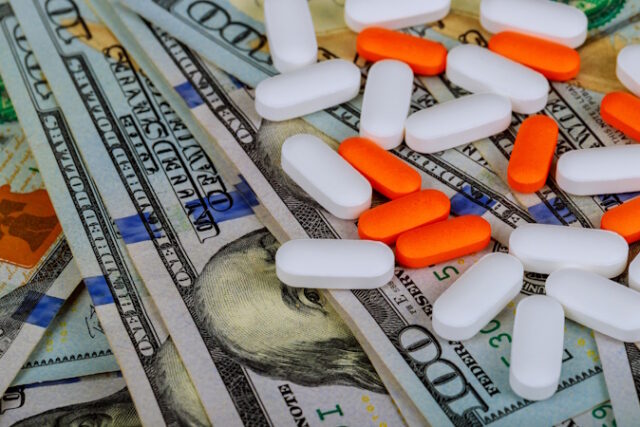
The Biden administration on Wednesday said it will impose inflation penalties on 64 prescription drugs for the third quarter of this year, lowering costs for certain older Americans enrolled in Medicare.
President Joe Biden has made lowering U.S. drug prices a key pillar of his health-care agenda and reelection platform for 2024. A provision of Biden’s Inflation Reduction Act requires drugmakers to pay rebates to Medicare, the federal health program for Americans over age 65, if they hike the price of a medication faster than the rate of inflation.
It is separate from another provision under the law that allows Medicare to negotiate lower prescription drug prices with manufacturers. On average, Americans pay two to three times more than patients in other developed nations for prescription drugs, according to the Biden administration.
Some patients will pay a lower coinsurance rate for the 64 drugs covered under Wednesday’s announcement, which fall under Medicare Part B, for the period from July 1 to Sept. 30 “since each drug company raised prices faster than the rate of inflation,” according to a release from the administration.
Some Medicare Part B patients may save as much as $4,593 per day if they use those drugs during the quarter, the release added.
More than 750,000 Medicare patients use the drugs each year, according to the release. The medications treat conditions such as cancer, certain infections and a bone disease called osteoporosis.
The list includes Bristol Myers Squibb’s Abecma, a cell therapy for multiple myeloma; and Pfizer’s targeted cancer treatment for certain lymphomas called Adectris. It also includes Astellas Pharma and Pfizer’s Padcev, a targeted cancer treatment for advanced bladder cancer.
The Biden administration said Padcev’s price has increased faster than inflation every quarter since the Medicare inflation rebate program went into effect last year.
“Without the Inflation Reduction Act, seniors were completely exposed to Big Pharma’s price hikes. Not anymore,” Neera Tanden, White House domestic policy advisor, said in the release.
The Centers for Medicare & Medicaid Services plans to send the first invoices to drugmakers in 2025 for the rebates owed to the program.
In December, Biden released a list of 48 prescription drugs that would be subject to inflation penalties during the first quarter of 2024.
More CNBC health coverage
Disclaimer
The information contained in South Florida Reporter is for general information purposes only.
The South Florida Reporter assumes no responsibility for errors or omissions in the contents of the Service.
In no event shall the South Florida Reporter be liable for any special, direct, indirect, consequential, or incidental damages or any damages whatsoever, whether in an action of contract, negligence or other tort, arising out of or in connection with the use of the Service or the contents of the Service. The Company reserves the right to make additions, deletions, or modifications to the contents of the Service at any time without prior notice.
The Company does not warrant that the Service is free of viruses or other harmful components
This article originally appeared here and was republished with permission.












